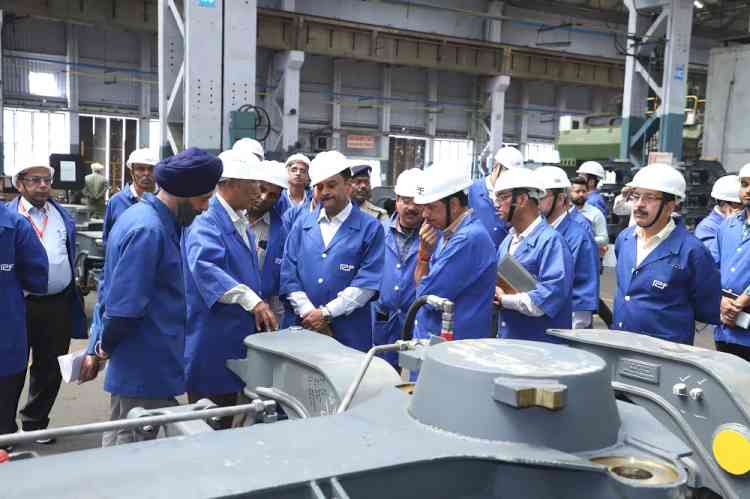OPINION: Government should not tinker with the already tightened labour laws
Author(s): PD SharmaThe Author. Government of India is tinkering with the labour laws in a major way. It is proposing to link minimum wages with inflation. In the matter of Employees Provident Fund government proposes to include all...


The Author.
Government of India is tinkering with the labour laws in a major way. It is proposing to link minimum wages with inflation. In the matter of Employees Provident Fund government proposes to include all allowances in the salary amount whose 24% (12% each by the employee and employer) has to be mandatory saved with the provident fund. It is a very harsh step. Government is also affecting changes in the labour contract laws.
Industry has been crying for softening of labour laws so as to make it globally competitive. Labour laws were severely tightened during emergency year 1976 by inserting restrictive Chapter V (B) in the industrial Disputes Act. This made it almost impossible for an industrial enterprise with more than 300 employees to either retrench its workforce or even closed down without government permission which never comes. This harsh position was further made harsher by lowering the threshold limit to 100 in the year 1982.
Now the change in the provident fund is downright retrograde especially in the economic reform regime. The take home salary of the employees will be drastically reduced. Employees can’t save in the manner of their choosing and earn more on this saving. The track record of the managing by the Employees Provident Fund Organization (EPFO) is very miserable. The overall saving in the country will be reduced and general consumption will also be reduced. This reduction will impact the industry adversely because with the decrease of demand of consumable goods the industrial growth will be lowered. This in turn will reduce the employment opportunities for the labour.
In the industry is already compensating the labour for inflation. Mandatorily linking wages with inflation can be a cause of recurring irritation between employees and employers. If the inflation goes down, no employee will agree to have his wages decreased. Labour comes under concurrent list. It is not mandatory for states to implement the national Floor Level Minimum Wages (NFLMW) set by the Centre. At present against the NFLMW of Rs. 115 per day industry is already paying much higher. Even RBI has said that there is no unrest in the labour due to high inflation as rural wages have been rising at a faster clip annually for the last 5 years. So is the case with the urban labour. Government is urged not to tinker with the already tightened labour laws. Country has already suffered heavily due to these unreasonable labour laws. Many of the Asian countries have taken advantage of this and their economies have flourished due to labour intensive industries at the cost of our country.
(Disclaimer: The views expressed by the author in this article are his own and do not necessarily reflect the views of City Air News.)

 cityairnews
cityairnews 
















